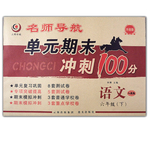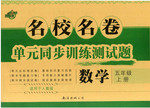
We have a growing population and________we need more food.
A.even B.besides C.yet D.therefore
 名师导航单元期末冲刺100分系列答案
名师导航单元期末冲刺100分系列答案 名校名卷单元同步训练测试题系列答案
名校名卷单元同步训练测试题系列答案科目:高中英语 来源:2013届河北省五校联盟高三上学期调研考试英语试卷(带解析) 题型:填空题
根据短文内容,从短文后的选项中选出能填入空白处的最佳选项。选项中有两项为多余选项。注意:涂卡时,如答题卡上没有E、F、G选项,请按如下方式填涂:选E涂AB;选F涂BC;选G涂CD。
Before going outside in the morning, many of us check a window thermometer (温度计) for the temperature. This helps us decide what to wear. 1 We want our food to be a certain coldness in the refrigerator. We want it a certain hotness in the oven. If we don’t feel well, we use a thermometer to see if we have a fever. We keep our rooms a certain warmth in the winter and a certain coolness in the summer.
Not all the thermometers use the same system to measure temperature. We use a system called the Fahrenheit scale. But most other countries use the Centigrade scale.
Both systems use the freezing and boiling points of water as their guide. 2
The most common kind of thermometer is made with mercury (水银) inside a clear glass tube. As mercury ( or any other liquid ) becomes hot, it expands. As it gets colder, it contracts (收缩) . That is why on hot days the mercury line is high in the glass tube. 3
First, take a clear glass juice bottle that has a cap; fill the bottle with colored water. Tap a hole in the center of the cap using a hammer and thick nail. Put the cap on the jar. Then stick a plastic straw (吸管) through the nail hole.
4
Finally, place a white card on the outside of the bottle and behind the straw. Now you can see the water level easily.
5
As the temperature goes down, the water will contract, and the level in the straw will come down. Perhaps you will want to keep a record of the water level in the straw each morning for a week.
A. We use and depend on thermometers to measure the temperature of many other things in our daily lives.
B. Thermometers measure temperature, by using materials that change in the same way when they are heated or cooled.
C. Now that you know this rule you can make a thermometer of your own that will work.
D. The water will rise in the straw. As the temperature of the air goes up, the water will expand and rise even higher.
E. They label these in different ways. On the Fahrenheit scale water freezes at 32 degrees and boils at 212 degrees. On the Celsius scale water freezes at 0 degrees and boils at 100 degrees.
F. Take wax ( you may use an old candle if you have one ) and melt some of it right where the straw is stuck into the cap to seal them together.
G. People use thermometers which are made by themselves when travelling around the world.
查看答案和解析>>
科目:高中英语 来源:2014届河南省高二上学期期末考试英语试卷(解析版) 题型:完型填空
A man and his girlfriend got married. It was a large celebration. Everyone could tell that the love they had for each other was 36 .
Some months later, the wife said to the 37 , “I read in a magazine about how we can strengthen our 38 . Each of us will write a list of the things that we find a bit annoying(恼人的) with 39 person. Then, we can talk about how we can 40 them together and make our life happier together.”
The husband 41 . So each of them went to a separate room and thought of the things that 42 them about the other.
The next morning, at the 43 table, they decided that they would go over their lists.
“I’ll start,” offered the wife.
She took out her list. It had 44 items on it. As she started reading the list of the little annoyances, she 45 that tears were starting to appear in her husband’s eyes.
“What’s wrong?” she asked. “ 46 ,” the husband replied, “keep reading your list.”
The wife continued to read 47 she had read all the three pages. She carefully placed her list on the 48 and crossed her hands over top of it.
“Now, you read your list and then we’ll talk about the things on both of our lists.” She said 49 . Quietly the husband said, “I don’t have anything on my list. I think you are 50 as you are. You are lovely and wonderful. I don’t want you to 51 anything for me.”
The wife, touched by the depth of his love for her and his 52 of her, turned her head and wept(流泪).
We have a wonderful 53 that is full of beauty, light and promise. Why 54 time looking for the bad, disappointing or annoying when we can 55 us and see the wonderful things before us?
1. A.true B.false C.kind D.happy
2. A.boyfriend B.husband C.father D.mother
3. A.home B.family C.house D.marriage
4. A.some B.other C.the other D.another
5. A.repair B.solve C.set D.raise
6. A.agreed B.admitted C.refused D.laughed
7. A.interested B.surprised C.troubled D.puzzled
8. A.lunch B.supper C.breakfast D.dinner
9. A.such B.few C.no D.many
10. A.guessed B.understood C.knew D.noticed
11. A.Nothing B.Something C.Everything D.Anything
12. A.unless B.until C.after D.when
13. A.floor B.bed C.chair D.table
14. A.sadly B.happily C.angrily D.crazily
15. A.perfect B.beautiful C.gentle D.rich
16. A.read B.write C.change D.do
17. A.belief B.doubt C.understanding D.acceptance
18. A.home B.earth C.world D.country
19. A.waste B.spend C.take D.devote
20. A.look at B.look around C.look after D.look for
查看答案和解析>>
科目:高中英语 来源:2013届江苏南京三中(六中校区)高二下学期期末英语试卷(解析版) 题型:阅读理解
请认真阅读下列短文,并根据所读内容在文章后表格中的空格里填入最恰当的单词。注意:每空格1个单词。
Searching for the truth
Collecting mid writing news is like researching in history: the best information comes from those who were there at the time. So if' we want to study tile history of China in the sixth century AD, we look at the writings of the people who lived then. They are called the primary sources because they tell us what it was like to live then. People at a much later date who write about the same events are called the secondary sources. For example, when we read the original writings of Jia Sixie on agriculture, we are reading a primary source; when we read about Jia Sixie in our textbook we are reading secondary source because the passage was written about him and his ideas many years after he died.
When we make news we use primary and secondary sources. We can see this most clearly in TV programmes. As we watch the news on TV, the person presenting the programme in the studio is the secondary source( because he tells us about the news) and the reporter in. Iraq or Washington is the primary source (because he is telling us about what is actually happening there). Without these reporters acting as primary sources, you would never find out what really happened in a war, earthquake, sports meeting, concert or festival. These reporters explain what is happening so we have a clearer idea of what is going on there. They often take photographers with them who act as primary source by giving pictures of events.
In a newspaper the position is different because these two roles are often combined. This means a reporter who investigates a story may be the same person who writes it. If this happens, the reporter is both the primary and the secondary source. But the photographer who works with him/her is still a primary, source.
One of the reasons that it is important to separate primary and secondary sources is that they help us to decide what is a fact and what is an opinion. A fact is something that everybody agrees has happened. An opinion is somebody's idea of what happened. So facts and opinions are often mixed in any report, whether in a newspaper or on TV.
What have you learnt from the above passage?
|
Primary Source |
Primary sources are the writing of' the people who lived at (1)___________ time and offer an inside view of a particular event |
|
Secondary source |
Secondary sources are the writings of the people who write about the same events at a much later date with explanation and analysis (2)_________ on primary sources |
|
News on TV |
The TV (3)__________ in the studio is tile secondary source while the reporter on the (4) ____________ is the primary source |
|
News in a newspaper |
A newspaper reporter can be both primary and secondary source if he collects the information anti then (5) ______________ the news. But the photographer(6) ___________ with the reporter is always a primary source |
|
Fact |
A fact is something that everybody agrees has happened. In other (7)____________, it is something that is (8) ________________ |
|
Opinion |
An opinion is somebody's idea of what (9)________________on |
|
Conclusion |
Primary and secondary sources are both important for (10)_______ the truth |
查看答案和解析>>
科目:高中英语 来源:2013届新疆农七师高级中学高二下学期第二阶段考英语试卷(解析版) 题型:单词拼写
1.A high ___________ (比例)of the female staff are part-time workers.
2.American English d___________ from British English in many aspects.
3.His ___(申请)to the company for manager has been refused.
4.The idea o___________ to him in a dream yesterday night.
5.As I ran up the stairs, my foot s___________ and I fell.
6.There will be rain later in c___________ and eastern parts of the country.
7.Shanghai is the __________(商务) heart of the country.
8.We have a___________ a great amount of evidence to accuse the murder.
9.It was _________(显而易见的) from her face that she was really upset.
10.People suffered many ________ (困苦) during that long winter.
查看答案和解析>>
科目:高中英语 来源:2010-2011学年江苏省姜堰市高三上学期学情调查(三)英语卷 题型:阅读理解
Love, success, happiness, family and freedom----how important are these values to you? Here is one interview which explores the fundamental questions in life.
Question: Could you introduce yourself first?
Answer: My name is Misbah, 27 years old.I was born in a war-torn area.Right now I’m a web designer.
Q: What are your great memories?
A: My parents used to take us to hunt birds, climb trees, and play in the fields.For me it was like a holiday because we were going to have fun all day long.Those are my great memories.
Q: Does your childhood mean a lot to you?
A: Yes.As life was very hard, I used to work to help bring money in for the family.I spent my childhood working, with responsibilities beyond my age.However, it taught me to deal with problems all alone.I learnt to be independent.
Q: What changes would you like to make in your life?
A: If I could change something in my life, I’d change it so that my childhood could have taken place in another area.I would have loved to live with my family in freedom.Who cares whether we have much money, or whether we have a beautiful house? It doesn’t matter as long as I can live with my family and we are safe.
Q: How do your get along with your parents?
A: My parents supported me until I came of age.I want to give back what I’ve got.That’s our way.But I am working in another city.My only contact with my parents now is through the phone, but I hate using it.It filters(过滤) out your emotion and leaves your voice only.My deepest feelings should be passed through sight, hearing and touch.
1.In Misbah’s childhood, .
A.he was free from worry
B.he liked living in the countryside
C.he was fond of getting close to nature
D.he often spent holidays with his family
2.What did Misbah desire most in his childhood?
A.Peace and freedom B.A beautiful house.
C..A colorful life. D.Money for his family.
3.How would Misbah prefer to communicate with his parents?
A.By chatting on the Internet. B.By calling them sometimes.
C.By paying weekly visits. D.By writing them letters.
4.If there were only one question left, what would it most probably be?
A.What was your childhood dream? B.What is your biggest achievement?
C.What is your parents’ view of you? D.What was your hardest experience in the war?
查看答案和解析>>
湖北省互联网违法和不良信息举报平台 | 网上有害信息举报专区 | 电信诈骗举报专区 | 涉历史虚无主义有害信息举报专区 | 涉企侵权举报专区
违法和不良信息举报电话:027-86699610 举报邮箱:58377363@163.com